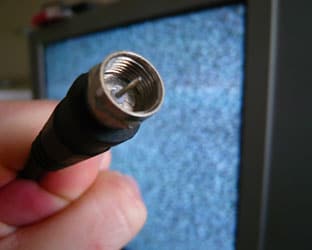 The FCC Commissioners voted 3-2 to approve the Incentive Spectrum Auction Report & Order. Three of the Commissioners (Rosenworcel, Clyburn, and Pai) actually uttered the word “LPTV” and seemed to make the case that they were concerned about the potential harm the repack could do to urban LD’s, rural translators (TXs), and the diverse content they provide.
The FCC Commissioners voted 3-2 to approve the Incentive Spectrum Auction Report & Order. Three of the Commissioners (Rosenworcel, Clyburn, and Pai) actually uttered the word “LPTV” and seemed to make the case that they were concerned about the potential harm the repack could do to urban LD’s, rural translators (TXs), and the diverse content they provide.
Mike Gravino, LPTV Spectrum Rights Coalition Director, had this to say: “Yesterday was more about what the FCC staff had proposed, and what had been negotiated by the staff of the Commissioners in these last few weeks. Most of you know that back in early April at the NAB Info-session the Coalition hosted with Media Bureau Chief Bill Lake, that he announced at least nine staff recommendations (you can see those here on our site). At this point we can not for sure say if LPTV got all of these recommendations approved, as the final full written R&O will not be available until next week or even later, and as they say, the devil is in the details (in this case the footnotes).
The big items we do know about:
1) Most remaining analog Class-A’s with digital construction permits (some 200+) will be auction eligible. We still need to see the R&O to see if they have to build-out or just use their existing analog coverage.
2) There will be a Further Notice of Rule Making for LPTV, as well as many other issues, so we will have at least 3-6 months more of input into the process and our future.
3) The FCC will use its new TVStudy software (yes the one that NAB hates and will probably file an appeal over) to conduct an LPTV repack. This is the first time anyone can remember where the FCC itself will actually optimize the engineering process themselves and assign new channels to LPTV. While it will save a lot of money and time (too bad for our engineering company friends), it will provide for a very orderly repacking process. At least until everyone starts filing modifications.
4) There will be not a 90-day notice to vacate a channel when the new wireless companies can certify they are ready to launch, but now a 120-day notice. Small comfort to those in major markets which may be displaced quickly.
5) And the biggest news is that the FCC has totally bought into our “double-build” argument, meaning that they will now push back and harmonize with the auction process the remaining A-D construction permits, about 1000 of them, to some point post-primary repack. What we do not know until the final R&O is released is if that includes the 2009 rural filing window CP’s (2000 or so of these). Of course the Coalition will be fighting to have both groups of CP’s harmonized to the post primary repack time frame. We think at this time that should be month 51 post auction, based on the 39 month limit for the use of the relocation funds for the displaced primaries and Class-A’s, plus one year. The main objective for the FCC here is to not flood the primary repack zone with 3000 LPTV CP’s, never mind the potential 2500++ displaced by the auction LPTV CPs. We will fight to make sure that any LPTV can build-out on their new displacement channel as soon as they are ready and not have to wait.
6) The one issue we did not fully win on is the total amount of the unlicensed spectrum being given away for free which comes directly out of the available channels LPTV will have to repack into. The Coalition is the only broadcast group to fight this issue and we did it for the entire year of our lobbying. The FCC is giving up to 24-30 MHz of spectrum for unlicensed use, depending on the varying market by market band plans. What the Coalition did win was the battle over “contiguous spectrum”, which could have wiped out up to 1000 LPTV channels to displace into. It remains to be seen how this issue will finally play out, but we will be fighting it.
7) Related to the unlicensed spectrum issue is that of the optimization software being used to assignment LPTV channels. As long as the FCC does the LPTV optimization first, and then the assignment of the unlicensed spectrum, we can in that scenario almost be assured 100% that all current LPTV licensees and CP’s will find new channels. Of course that does not mean the same coverage or pop counts as today, but that is the condition of our secondary license.
There are potential major conflicts in the LPTV community between the urban LD’s and rural TX’s, so I hope to start a lively discussion about it to see if we can resolve the issues. The TX’s want a priority in the LPTV repack because they feel like they are part of the coverage areas of the primaries. But that battle was lost when the Act was passed, and no priorities are currently on the table. Further the NAB and NTA did no lobbying about this issue for 2.5 years, and now at the last minute are complaining about it.
We think Congress got it right to keep the current LPTV pecking order in place during the repack. But it will be an issue in the next phase of the LPTV rule making, we as a community, need to address. A potential solution is to split the LDs from the TX’s and have them governed separately. We also think the LD’s should have a path to Class-A or primary since they are real local broadcasters. Another simple solution is for the TX’s which are licensed by civic and government entities to start a local content stream and convert to LD. We have heard from a lot of them about this already.”
Here are the links to the video and documents from the 5/15 meeting:
Video (go to about 64:22)
FCC Adopts Rules for First Ever Incentive Auction




